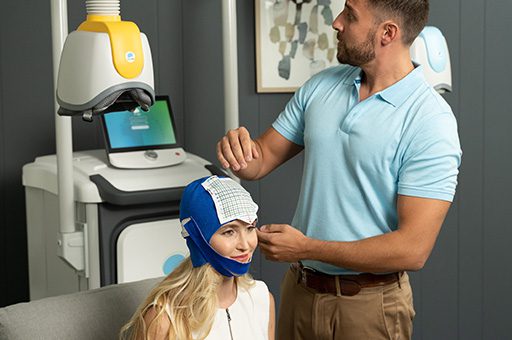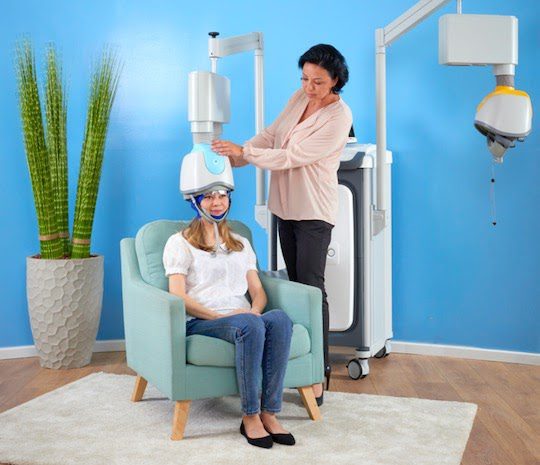Searching for a mental health treatment can be a long and arduous journey. Mental health disorders can affect an individual’s perception of self, sense of hope, relationships with those around them and their daily functioning. This tenacious condition can have damaging repercussions on one’s well-being, and pushes many individuals to seek out a way to alleviate its symptoms. Over the past decade, transcranial magnetic stimulation, or TMS therapy, has steadily increased in professional recognition and popularity, as a promising option in the fight for greater mental health. So what is this treatment, who is for and how should you prepare for it?

Transcranial magnetic stimulation, or TMS, is a non-invasive form of therapy that utilizes electromagnetic fields to regulate brain structures found to be associated with the mental health condition being targeted. It is considered a fairly tolerable treatment that does not require much preparation.
TMS treatment is normally carried out several times a week for approximately four months. It is considered both safe and effective, normally does not cause any adverse or long-lasting side effects.
There are currently two types of TMS available on the market. Traditional TMS has been publicly available since 1985, and uses a handheld device to send out electromagnetic fields. Its advancement, Deep TMS, utilizes a cushioned helmet that holds its own, patented H-Coil technology. Deep TMS manages to reach wider areas of the brain than its predecessor, as well as directly regulate structures located in deeper areas of the brain, which has been shown to increase efficacy. Both versions of TMS have been FDA-cleared to treat depression, with Deep TMS also FDA-cleared to treat obsessive-compulsive disorder (OCD) and smoking cessation.
TMS is a non-invasive treatment that normally does not cause any long-lasting or adverse side effects, and can be combined with other forms of therapy, such as psychotherapy or medication.
TMS can provide impressive results to those without prior treatment experience, but has notably delivered effective symptom alleviation to suffering from treatment-resistant patients, who had first tried other forms of therapy without significant results. It is also a viable option for individuals who have found the side effects of previous treatments, such as medication or electroconvulsive therapy (ECT), to be too harsh to allow them to stay the course.
Traditional TMS is offered to children and adults, while Deep TMS is offered to adults 18 or older. Patients undergoing Deep TMS (and at times traditional TMS) therapy must not have any contraindications for this treatment. These include:

The cost of TMS treatment can vary according to country, insurance coverage and treatment length. Deep TMS is covered by Medicare and most private US insurers, with single-case coverage options also sometimes available for those seeking treatment.
TMS normally does not necessitate any complex preparation process, with patients being able to incorporate each session into their daily routine
As a non-invasive treatment, TMS does not entail a lengthy recovery period. This makes it a much more accessible option, as it allows patients to maintain their independence throughout the treatment process: patients are usually not required to have a chaperon with them, and can drive themselves home after each session. Since it normally does not incur any significant discomfort or pain, no anesthesia is needed in preparation for it.
Due to its increasing availability, a TMS treatment center is found within driving distance for many US residents. TMS providers are also widely available across the globe.